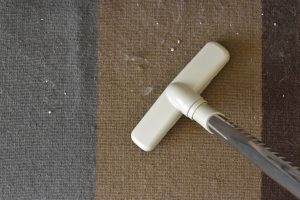Wood pellet litter is turning heads in the cat community. Why? Well, it's hailed as a healthier alternative to the usual suspects on the cat litter shelf.
The eco-friendly credentials, natural ingredients, and superb odor control make it a favorite for some.
But like everything, it has its downsides: non-clumping nature, potential insect attraction, and a price tag heftier than clay litter.
So, is this the litter revolution your feline friend has been waiting for? Let's sift through the details and find out.
Pros of Wood Pellet Cat Litter
The long list of advantages makes it easy to see why many cat owners love using wood pellet litter.
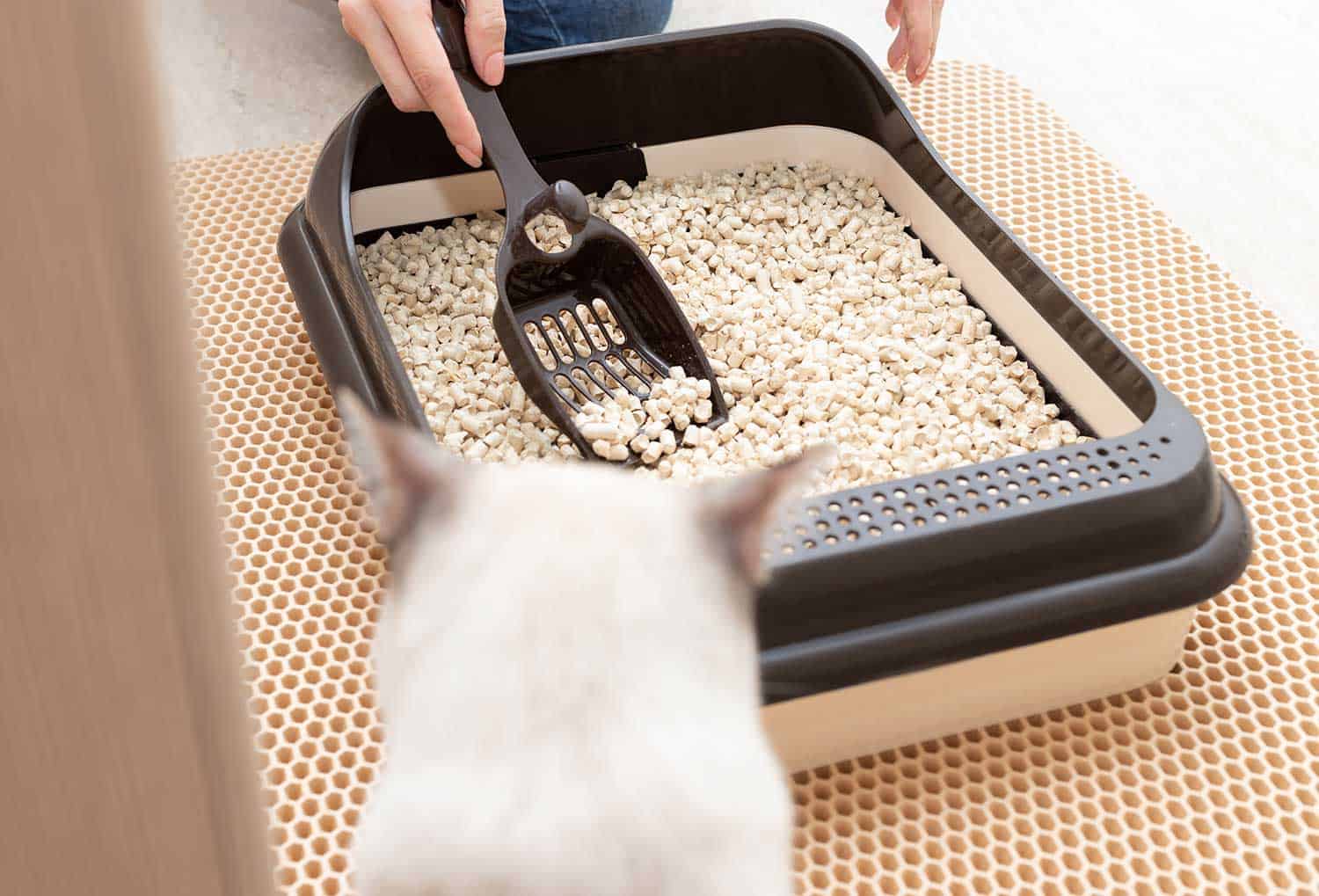
So, let's look at each in greater detail to see whether you and your cat could also benefit from using it.
1. Made with Natural Ingredients
Wood pellet litters are a healthy alternative to traditional clay cat litters.
They earn this title by featuring all-natural ingredients rather than chemical additives, clumping agents, or synthetic fragrances.
You'll often find these unwanted ingredients within clay litter types. Their prices tend to be much lower than plant-based and wood pellet litters.
If you want to learn about the various cat litter types, check out this guide: The 7 Types Of Cat Litter Every Cat Owner Must Know
2. Eco-friendly
Wood pellet litter users can sleep well knowing they're using an Eco-friendly product.
Most wood pellets consist of reclaimed lumber that a lumber company would otherwise waste.
Due to this, these formulas feature renewable resources, so it's not harming our planet.
It also means no one cut down new trees to create your cat's litter. You can even use wood pellet litters as compost to further help reduce waste.
But, sadly, clay cat litter doesn't offer the same feeling as it's harvested through strip mining.
3. Better Odor Control
Many types of cat litter deal with odor by trying to mask it.
But wood pellet litters, especially ones made from pine, can help suppress and eliminate those nasty odors.
This odor control comes from breaking into sawdust when the litter wets. As a result, it'll trap and eliminate the odors of ammonia and urine.
Pine wood pellet litters also feature natural antimicrobial properties that suppress odor-causing bacteria.
4. Dust-free and Less Tracking
Wood pellet litters are almost entirely dust-free and keep tracking to a minimum. After all, the pellets are much heavier and larger than granular litter.
So it's hard for a cat to track dirty litter all over your home on their paws. It also helps wood pellet litters be much less messy than other types.
Of course, there isn't an utterly mess-free cat litter, but wood pellet options do an admirable job.
However, rambunctious cats will still find a way to toss pellets and sawdust around the room.
5. Lightweight
Transporting wood pellet cat litter is a lot less burdensome for owners.
In fact, these formulas are much lighter than what you usually get with clay litter. It makes lifting and pouring more convenient when freshening up the litter box.
6. Lasts Longer
Clay litter can't compete with wood pellets when it comes to longevity. These wood pellet formulas last much longer between litter box changes.
After all, they're known for their high absorbent rate that requires less frequent changing.
7. Mild Scent
One of the most significant issues with clay litter is its overpowering fragrances. These additives can make the litter stink up an entire room without much issue.
On the other hand, wood pellet litters don't offer this problem as they have a mild and natural scent.
Cons of Wood Pellet Cat Litter
Wood pellet cat litter isn't a perfect product, as it does have some flaws. Unfortunately, these issues make it a bad fit for certain cat owners.
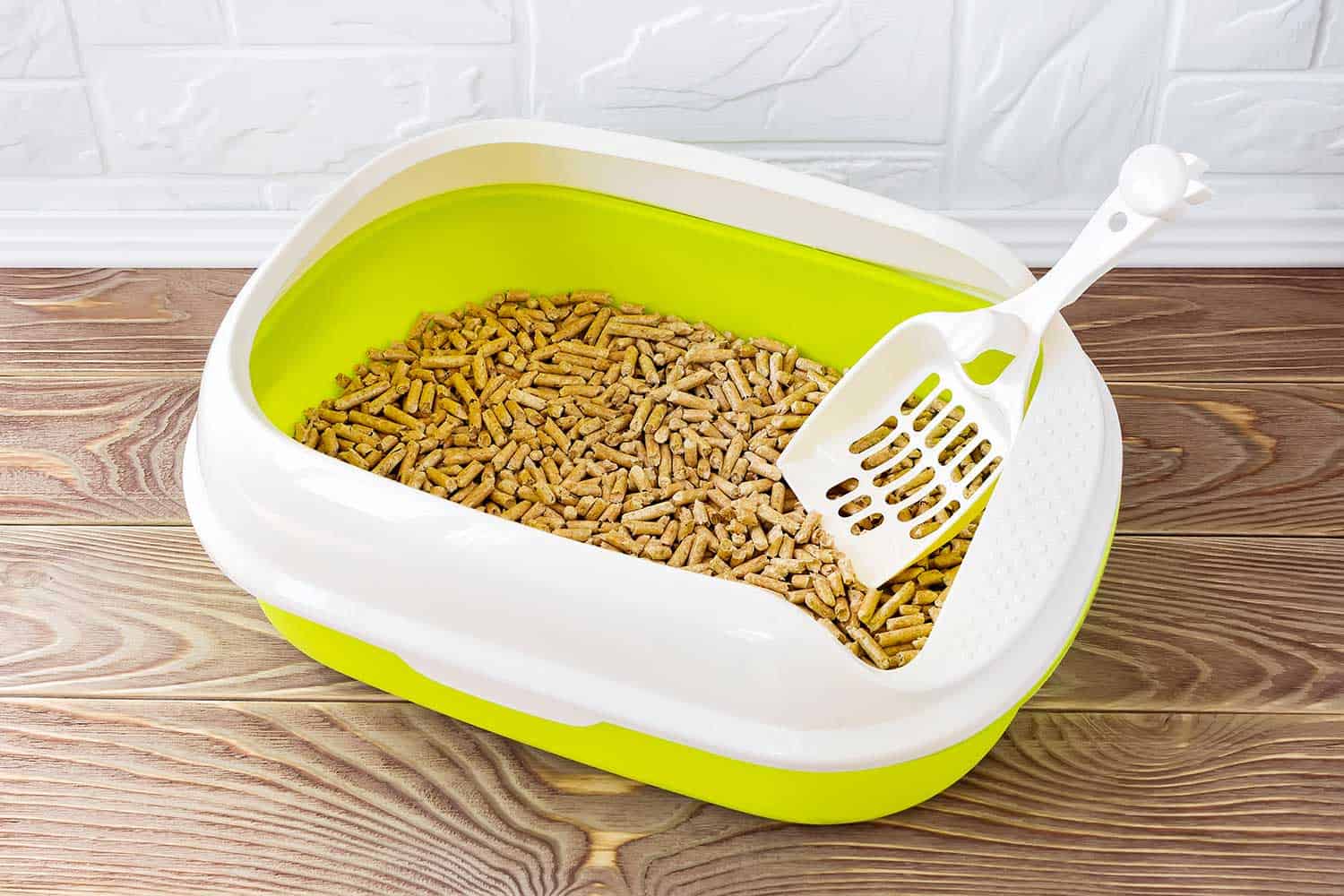
1. Doesn't Clump
Most wood pellets litter won't clump, making cleaning less convenient. Instead, the wet pellets dissolve into sawdust and absorb moisture.
You'll need to sift through this sawdust to separate the unused pellets. It ends up taking a little longer to clean than clumping litter products.
2. May Attract Insects
Certain bugs will find themselves attracted to the wood pellets. Due to this, it's possible more insects could be in or around your cat's litter box than usual.
But it's essential to note that a cat litter box filled with wood pellets will not cause a bug infestation within your home.
These bugs are more likely to be drawn to the box from other areas in your house.
In other words, it won't be the source of your bug problem, but it could make the issue more apparent.
Anyone curious about what bugs could appear inside a litter box should read this guide: Does The Litter Box Attract Bugs?
It discusses all the potential creepy crawlers that might call your cat's litter box home.
3. Some Cats Don't Like its Texture
Wood pellet litter has a coarse texture that some cats don't enjoy. In particular, senior and overweight kitties dislike the pellets more than most.
Owners with these cats might have to stick with traditional clay or plant-based options.
If your senior cat isn't using the litter box or avoiding it completely, our article Senior Cat Not Using Litter Box – What To Do? will help figure out the issue.
4. Cost More than Clay Litter
Clay litters are so popular among cat owners because they're affordable. Unfortunately, wood pellet litters can't compete with them regarding price.
But there's some good news—these lighter options require less changing than clay litters.
So you do not have to buy new bags as frequently as with clay litter. As a result, the difference in cost becomes closer than initially expected.
Are Wood Pellets Safe for Cat Litter?
Wood pellets are generally safe to use as cat litter. However, you must ensure the pellets don't contain phenol which is found in pine oil.
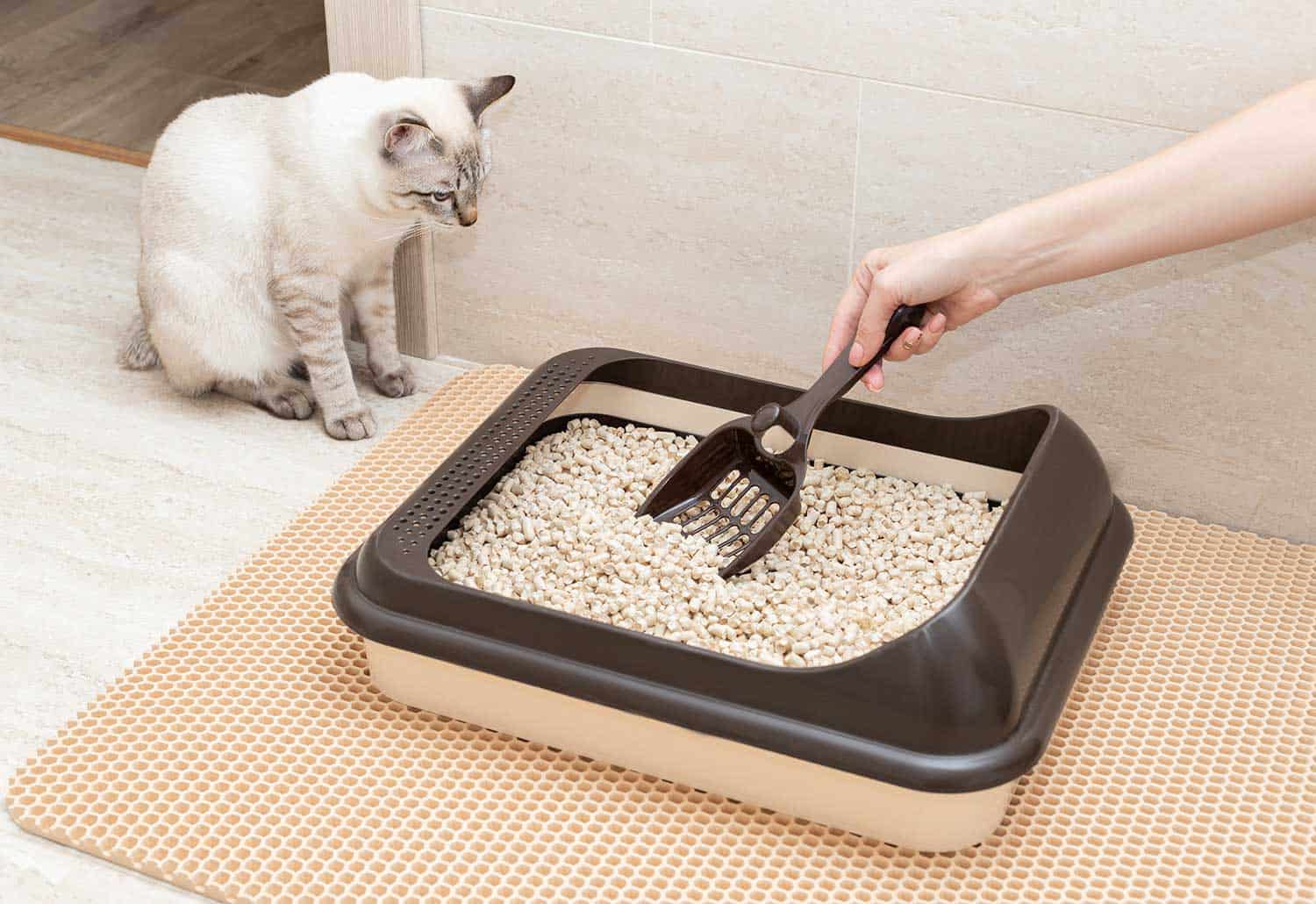
You should also avoid added chemical additives and only use options made from 100% natural wood fibers.
What Kind of Pellets Can You Use for Cat Litter?
Cat owners don't have to worry about using wood pellets made explicitly for cat litter usage.
These options are always safe for your pet. But things start getting iffy when considering wood stove pellets or horse bedding.
In these cases, we suggest contacting the manufacturer. You'll need to verify and ask them questions directly to confirm the following:
- The pellets were kiln-dried to remove phenol and pine oil.
- They didn't use any additives or ingredients aside from natural wood.
- They made each pellet from untreated wood.
We also advise you to clearly explain your intentions to use their pellets as cat litter.
The manufacturer can then quickly tell you whether there are any possible health concerns. In most cases, you can expect their pellets to be kiln-dried.
But it never hurts to confirm, as we all want our kitties to remain safe. So please research before using wood stove pellets or horse bedding as cat litter.
How Often Should You Change Wood Pellet Cat Litter?
Most wood pellet litter manufacturers recommend changing it out once every two weeks.
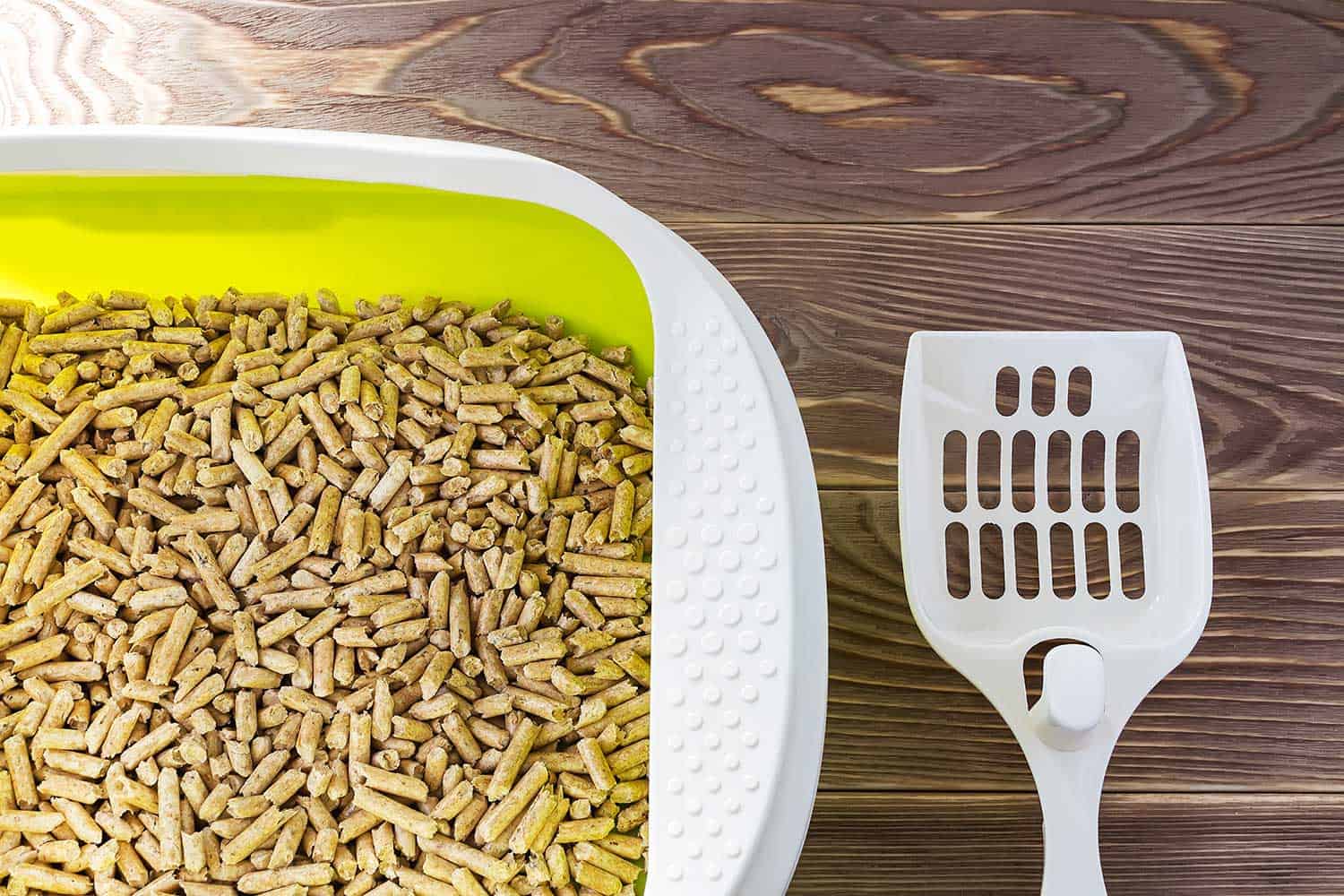
However, several factors can impact this decision. One massive consideration would be how many cats you have.
For instance, single cat owners can get away with only changing it once every four weeks.
But anyone with two or more will need to stick with the two-week rule or more frequently.
It becomes rather apparent when wood pellet cat litter requires a change by the amount of sawdust.
Does Pellet Litter Smell?
As discussed previously, pellet litter does have a mild and natural odor. But it's much less noticeable than what you can expect from other types of cat litter.
Plus, it does a solid job removing the nasty bathroom smells within the litter box.
Are Cats Allergic to Pine Pellets?
Pine wood shavings do contain oils known for irritating a cat's skin. It can lead to localized skin reactions, respiratory symptoms, and other allergy symptoms.
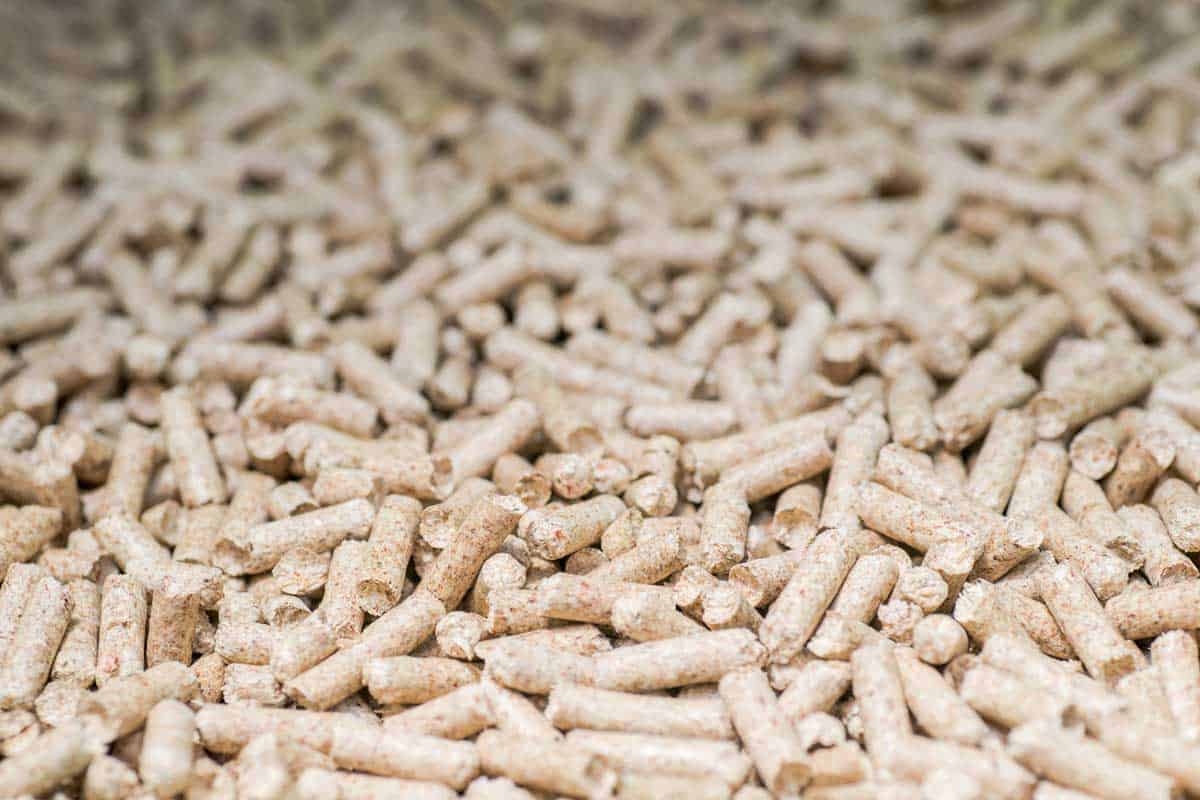
Given this information, we advise talking with your veterinarian before using pine wood pellets inside a litter box.
A quick vet visit is the simplest way to avoid allergic reactions or other issues. If you notice these symptoms, please immediately stop using the pine pellet litter.
Making the Right Litter Choice
Wood pellet litter can be an excellent choice for cat owners in the right situation.
Anyone who wants an all-natural product and hates the fragrances of clay litters would benefit significantly from them.
But you must know all the pros and cons before putting it in your cat's litter box.
As you consider the best for your feline friend, remember that every cat is unique. What works wonders for one might not be ideal for another.
So, take a moment, reflect on the insights shared, and choose with confidence. After all, your cat deserves the best.
Thanks for sticking around! If you found this helpful, feel free to share the article with your friends by pinning the image below on your social media.
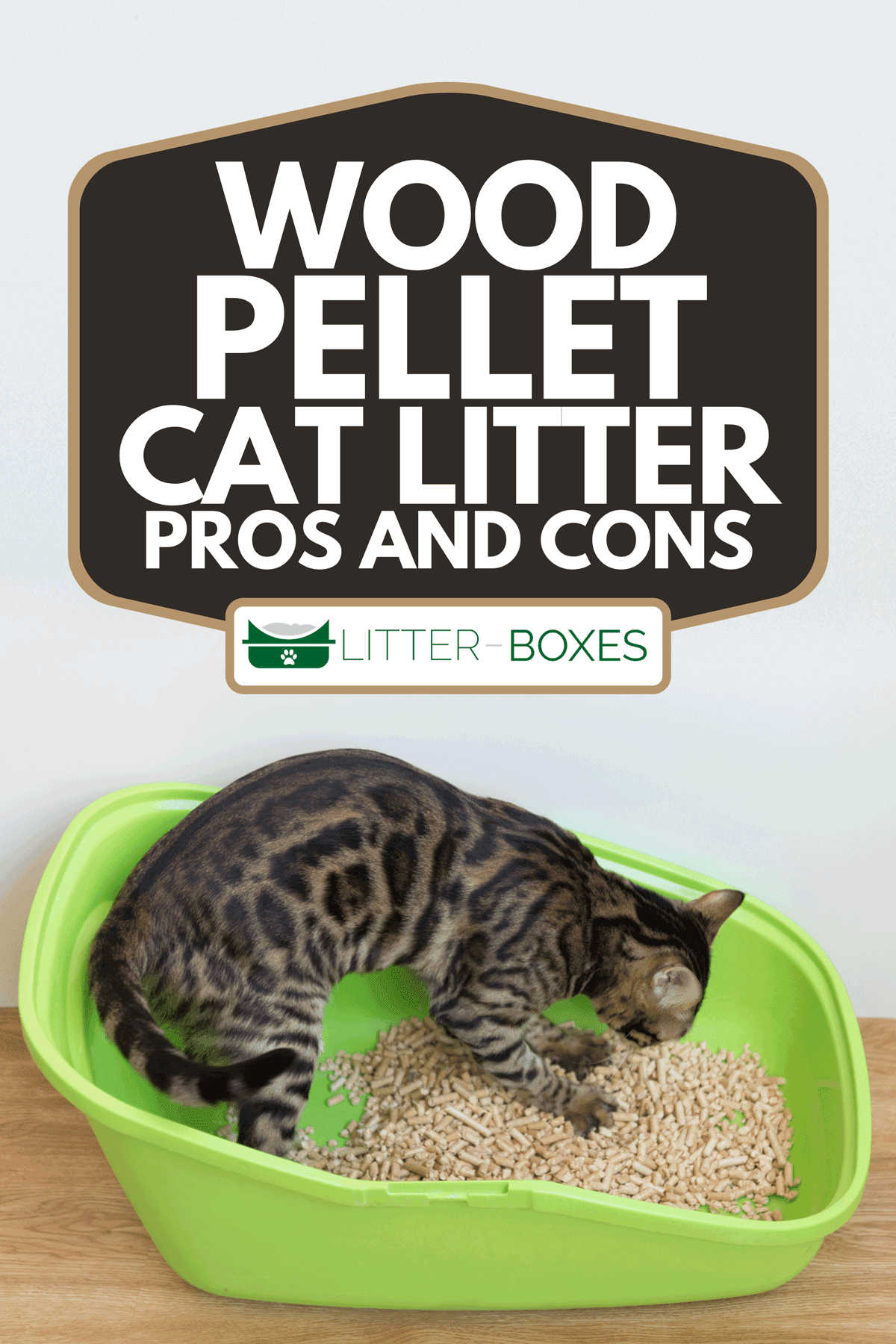

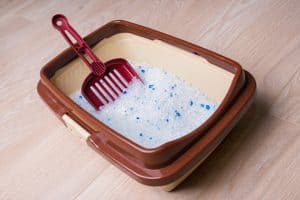
![cat examines kitty litter box with eco-friendly silicate litter - Can You Wash and Reuse Crystal Cat Litter? [Answered]](https://litter-boxes.com/wp-content/uploads/2023/08/cat-examines-kitty-litter-box-with-eco-friendly-silicate-litter-300x200.jpg)
